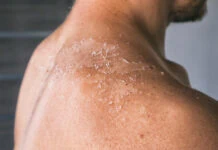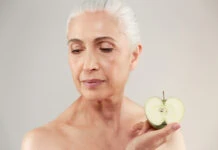Acne is a common skin condition that affects millions of people worldwide. It is characterized by the appearance of pimples, blackheads, and whiteheads on the face, neck, back, and chest. Acne can range from a few occasional pimples to severe and widespread outbreaks. While it is most common in teenagers, it can affect people of all ages, including adults.
Cause of Acne
The exact cause of acne is not fully understood, but it is believed to be related to several factors, including:
- Hormonal changes: Hormonal changes, such as those that occur during puberty, pregnancy, and the menstrual cycle, can increase the production of oil (sebum) in the skin, leading to clogged pores and the formation of pimples.
- Genetics: Some people are more prone to developing acne than others, which suggests that genetics may play a role.
- Lifestyle choices: Poor diet, lack of sleep, and stress can contribute to the development of acne by affecting hormone levels and the health of the skin.
- Bacteria: Propionibacterium acnes (P. acnes) is a bacteria that naturally lives on the skin. When oil and dead skin cells build up in the pores, P. acnes can multiply, leading to inflammation and the formation of pimples.
- Medications: Certain medications, such as corticosteroids and androgens, can cause acne by affecting hormone levels.
It is important to note that not everyone with acne will have the same cause, and some people may have a combination of these factors. A dermatologist can help determine the underlying cause of a person’s acne and develop an individualized treatment plan.
Symptoms of Acne
The symptoms of acne include:
- Pimples
- Blackheads
- Whiteheads
- Cysts (in severe cases)
- Inflammation and redness around affected areas
It is important to note that everyone’s experience with acne may be different, and some people may have mild symptoms while others have more severe symptoms. If you have persistent or severe acne, it’s best to consult a dermatologist for proper diagnosis and treatment.
Treating of Acne
Treatment for acne involves reducing the appearance of pimples, preventing new pimples from forming, and preventing scarring. The following are some common methods for treating acne:
- Over-the-counter products: Products such as salicylic acid and benzoyl peroxide are often used for mild to moderate acne. These products can help unclog pores and reduce the appearance of pimples.
- Prescription medications: Antibiotics and retinoids are commonly prescribed for more severe cases of acne. Antibiotics can help reduce inflammation and kill bacteria that cause acne, while retinoids help unclog pores and promote cell turnover.
- Lifestyle changes: Maintaining good skin hygiene, avoiding picking at acne, and eating a healthy diet can help reduce the appearance of acne. Getting enough sleep and reducing stress can also be beneficial.
- Professional treatments: A dermatologist may recommend professional treatments such as chemical peels, light therapy, or extractions for severe acne.
The treatment plan for acne may vary depending on the individual and the severity of their acne. A dermatologist can help determine the best course of treatment based on the individual’s specific needs and medical history.
It is important to follow the recommended treatment plan and to avoid using too many products, as this can cause irritation and make acne worse. It may take several weeks or months for acne to improve, so it is important to be patient and persistent with treatment. If the recommended treatments do not improve acne, a dermatologist may recommend a different approach.
Conclusion
In conclusion, acne is a common skin condition that affects millions of people worldwide. While its root cause is not fully understood, it is believed to be related to hormonal changes, genetics, and lifestyle choices.
Treatment for acne can include over-the-counter products, prescription medications, and lifestyle changes, and in severe cases, a dermatologist may be consulted for an individualized treatment plan.
Proper treatment of acne can help prevent scarring and improve self-esteem and mental health.
Contact Siam Clinic Phuket
- Contact us at Siam Clinic 1st Floor, Big C Phuket
- Map : https://g.page/SiamClinicPhuket
- Tel : 088-488-6718 and 093-692-5999
- Email : [email protected]
- Facebook inbox : https://m.me/siamclinicthailand
- Instagram : https://www.instagram.com/siamclinic
- Line@ : @siamclinic or add https://lin.ee/uny1D7n




